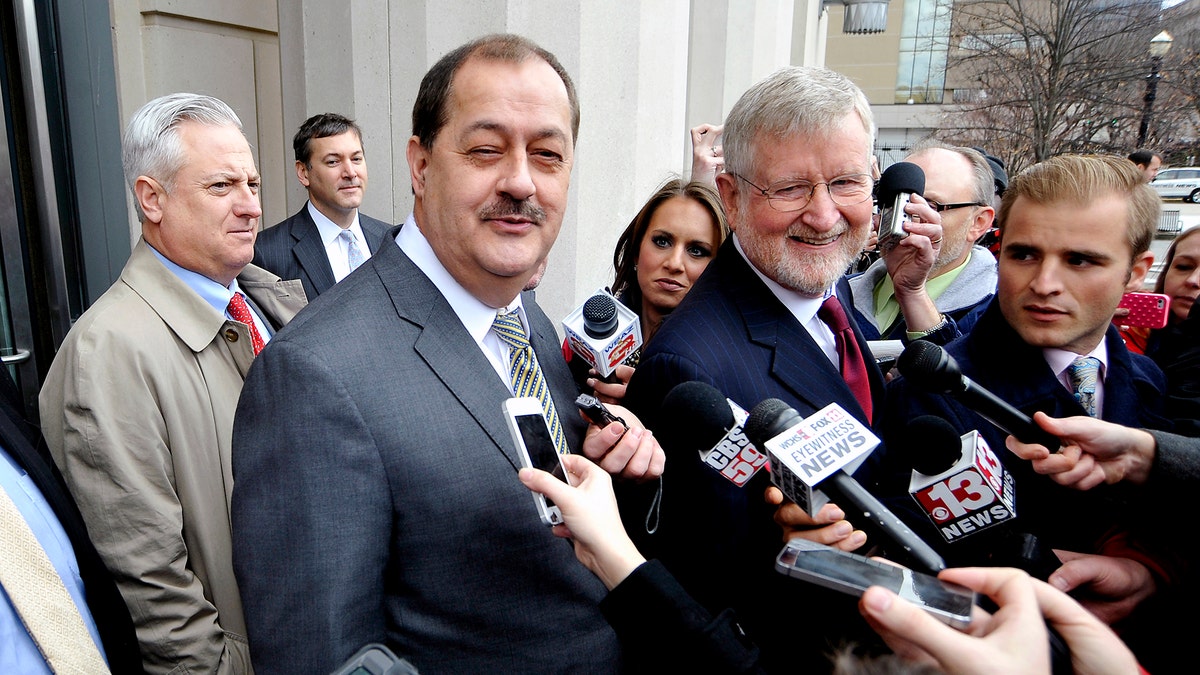
This time last year, Don Blankenship was close to completing a yearlong prison sentence following a misdemeanor conviction for conspiring to violate federal mine safety standards. Blankenship was the CEO of the Massey Energy Company when an explosion at the Upper Big Branch Mine killed 29 miners. Now, he’s jumped into a race with West Virginia Attorney General Patrick Morrisey and Congressman Evan Jenkins, R-W.V., to replace incumbent Sen. Joe Manchin, D-W.V., in a state President Trump carried by 42 points in 2016. (REUTERS)
There’s a sharp last-minute shift in strategy unfolding during the Republican Senate primary in West Virginia. And it involves the popular election tool known as the robocall.
So far in this campaign, most of the Republican-engineered effort to keep Senate hopeful Don Blankenship off the ballot has been funneled through an establishment-linked super PAC.
That has allowed the former coal baron’s competitors, Rep. Evan Jenkins, R-W.Va., and the state’s attorney general, Patrick Morrisey, to concentrate attacks on each other, with strategies seemingly dismissive of Blankenship’s chances to win in November.
But that ends today, three days before Primary Day this Tuesday. Morrissey has released his first statewide robocall, squarely targeting Blankenship.
“Convicted criminal Don Blankenship didn’t vote for President Trump and is a resident of Nevada, where he must report to his parole officer,” the robocall says.
Blankenship recently served a year in prison on a misdemeanor conviction for conspiring to violate mine-safety laws, in connection with a mine explosion that killed 29 workers in 2010.
The new call replicates a warning from allies to Senate Majority Leader Mitch McConnell, R-Ky, who don’t think Blankenship can beat Sen. Joe Manchin, D-W.Va., the incumbent, even in a state where Trump beat Hillary Clinton by 42 points in 2016.
“A vote for Blankenship is a vote to advance liberal positions, higher taxes and abortion on demand,” the robocall says. “That’s because Blankenship would get crushed in November."
Morrisey’s new focus on Blankenship, instead of Jenkins, comes after a Fox News debate on Tuesday, where Blankenship jokingly ducked behind his podium to avoid answering a question about potential support for McConnell as majority leader.
Blankenship’s campaign is unfazed by the new negative attention from Morrisey, though.
“Too little, too late,” said Greg Thomas, Blankenship’s spokesman.

